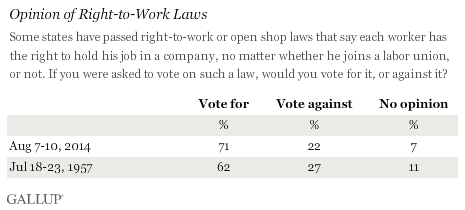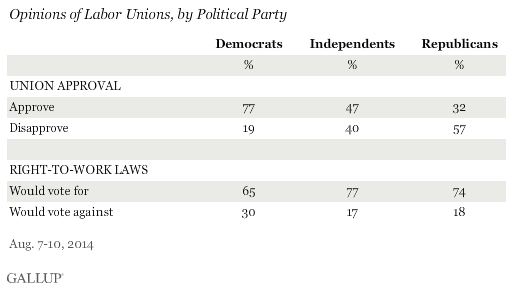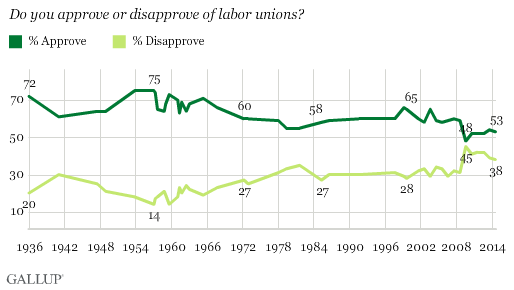Poll Shows Growing Support for Right-to-Work Laws … Even Among Democrats
Rob Nikolewski /
Vice President Biden delivered a fiery speech in support of unions at a Labor Day appearance in Detroit last week. But a recent Gallup poll painted a sobering picture for union backers.
When asked if they would vote for right-to-work laws, 71 percent of Americans—and 65 percent of Democrats—said they would.
That’s 9 percentage points higher than in 1957, when the U.S. economy was riding a post-war wave that saw union participation at record numbers.
The Gallup survey showed a political divide when it came to opinions about labor unions, with 77 percent of Democrats approving and 57 percent of Republicans disapproving. Independents approved of unions by a margin of 47 percent to 40 percent.
But when specifically asked about approving of right-to-work laws, even Democrats came out in favor by a 35-point margin.
“People may not have completely understood the question, but beyond that, I think [the Gallup poll] reflects the decreasing presence and powers of unions in the country,” said Joseph Slater, law professor and labor expert at the University of Toledo. “They haven’t gotten their message out to people who are skeptical of unions.”
Some 24 states have right-to-work laws, which give employees the right to decide for themselves whether to join or financially support a union. In 2012, Michigan became the most recent state to pass right-to-work legislation, even though some consider it the cradle of the U.S. labor movement.
Supporters say right-to-work laws ensure personal freedom and attract businesses and point to the booming economies of North Dakota and Texas as examples.
Detractors call the laws “right-to-work-for-less” and point to the generally higher level of pay and benefits workers receive in states that don’t have the law in place.
The political battle lines are forming for potentially more states to join the right-to-work contingent, including Missouri, Kentucky and New Mexico.



